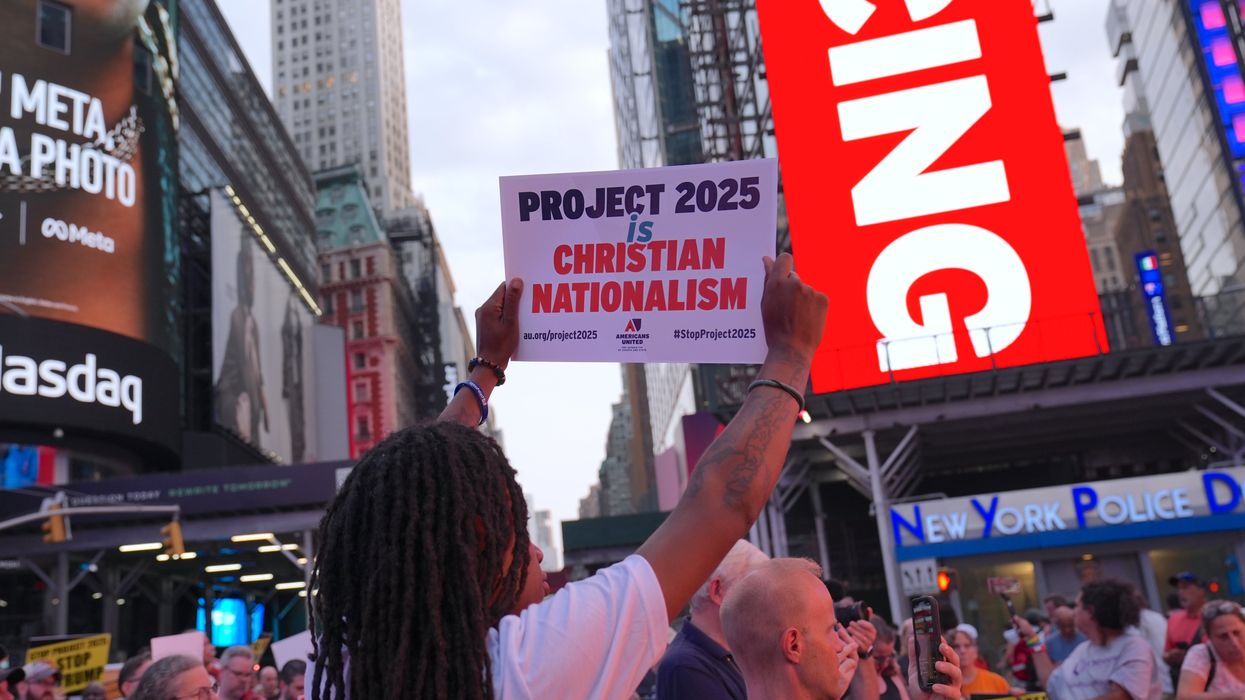Quince, a member of the board of Lawyers Defending American Democracy, was the first African American woman to serve on the Florida Supreme Court and as chief justice.
On Nov. 5, in elections around the country, we will determine whether these United States of America will continue to aspire to be a democratic republic or whether this country will give up its freedoms and embrace authoritarianism.
As an African American female who has lived through — and is still living through — systemic racism in this country, I know that despite the flaws in our system, our best path forward is to continue to work for justice and equality for all, to work with and preserve the rule of law and embrace and strengthen the constitutional ideals that are the hallmark of our American democracy.
We need not speculate on what our lives will be like should extremism continue to take over the branches of government. We have already felt the brunt of a judiciary that is driven by ideology instead of legal rules and precedent. We have already witnessed legislatures that have instituted laws suppressing not only the right to vote but also the right to dissent and to assemble peaceably to express that dissent. We are witnessing the suppression of the free flow of knowledge through book banning. Our children are now being exposed to revisionist history, and they are being told what books they can read, not by their parents but by the state.
Beyond these horrors lurks Project 2025. Promoted as a “conservative promise” for America, it is nothing close to traditional notions of conservatism. Project 2025 is an extremist blueprint for what is effectively authoritarian domination of America. It is a comprehensive plan to eradicate the American way of life, by ignoring the fundamental principles of the U.S. Constitution, the fundamental principles of human dignity and the ideals of a free, just and equal society that form the bedrock of this democratic America. The 30 chapters of Project 2025, described by Politico as an authoritarian Christian nationalist movement with the purposeful intention of moving America from a democracy to an autocracy-fascist-oriented country, are a daunting read.
This 922-page document seeks to destroy the fabric of our lives and many of our rights as embodied in the Bill of rights.
Here are but a few examples of what would happen to us if Project 2025 is implemented.
The First Amendment would be severely upended. While the First Amendment embodies five distinct rights — freedom of speech, freedom of religion (free exercise), freedom of the press, freedom to assemble and freedom to petition — religious freedom would be dramatically restricted if Project 2025 becomes the blueprint for America.
The freedom of religion has for many years been interpreted to provide for the separation of church and state. That separation would be eviscerated. Not only would Christianity be the “national” religion, but it would be supported by our taxpayer dollars going to faith-based organizations through USAID funding and other governmental programs.
We have already seen draconian legislation that has significantly stifled the right to assemble peacefully by designating protesters as rioters should any type of disturbance take place. And we know that counter protesters will make sure there is disturbance. We have also seen the press vilified when negative stories or opinions about specific politicians are expressed. Now we are threatened with the use of the military and Department of Justice resources to punish political opponents.
Beyond the threats to these basic rights, we see in Project 2025 the demise of our free public education system. While there certainly needs to be major improvements in our education system, Project 2025 seeks to “throw out the baby with the bathwater.” Instead of proposing changes, proponents of Project 2025 want to essentially eliminate the system and turn education over to private and religious organizations that are not bound by any standards or admission policies. These provisions are prime examples of violations of the principles of separation of church and state.
When did so many Americans get to the point where they do longer believe in the Constitution, in the Declaration of Independence, in the ideals that have served us well for over 200 years? How did we get to this point where a country that was founded to get away from a king’s command over the people’s lives seems on the brink of embracing this type of authoritarian leadership?
Maybe we need look no further than eliminating civics from our school curricula. Maybe we now have a population that does not understand the Constitution. A population that does not understand the concept of three co-equal branches of government or the separation of church and state. A population that has not learned from history but is willing to make the same mistakes that lead to ruin for other countries. A population that cannot or will not think for itself but is spoon-fed, told what to believe even in the face of evidence to the contrary.
This is not the America I know and love. Please wake up, America!



















Trump & Hegseth gave Mark Kelly a huge 2028 gift